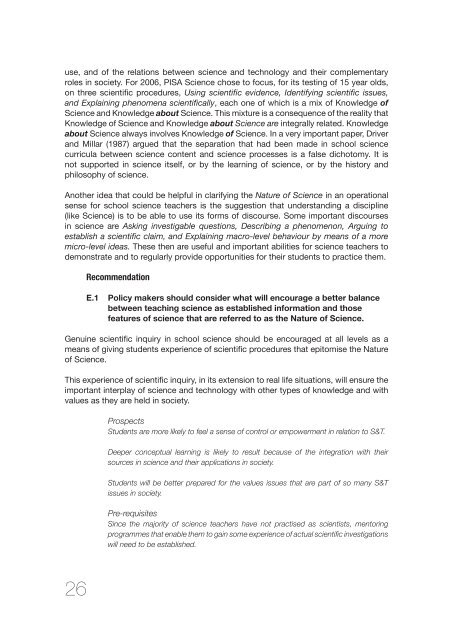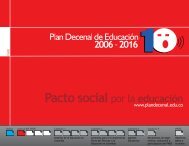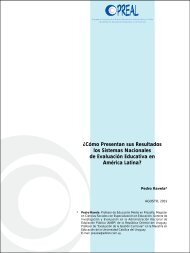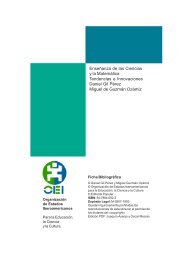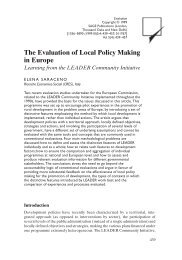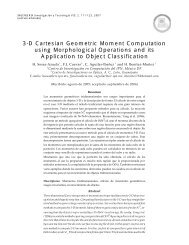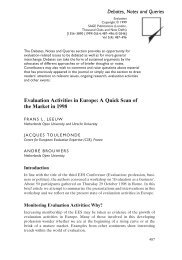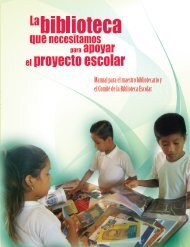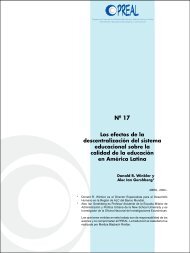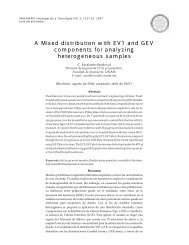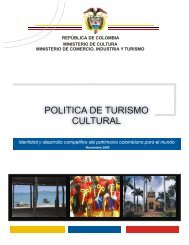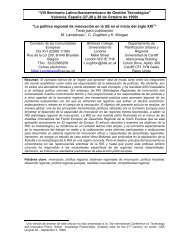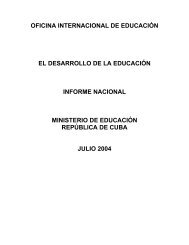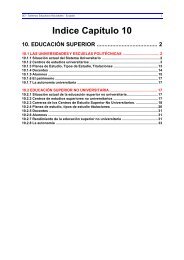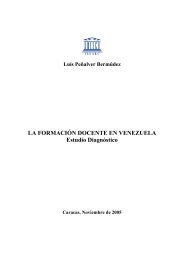Science education policy-making: eleven emerging issues; 2008 - OEI
Science education policy-making: eleven emerging issues; 2008 - OEI
Science education policy-making: eleven emerging issues; 2008 - OEI
You also want an ePaper? Increase the reach of your titles
YUMPU automatically turns print PDFs into web optimized ePapers that Google loves.
use, and of the relations between science and technology and their complementary<br />
roles in society. For 2006, PISA <strong>Science</strong> chose to focus, for its testing of 15 year olds,<br />
on three scientific procedures, Using scientific evidence, Identifying scientific <strong>issues</strong>,<br />
and Explaining phenomena scientifically, each one of which is a mix of Knowledge of<br />
<strong>Science</strong> and Knowledge about <strong>Science</strong>. This mixture is a consequence of the reality that<br />
Knowledge of <strong>Science</strong> and Knowledge about <strong>Science</strong> are integrally related. Knowledge<br />
about <strong>Science</strong> always involves Knowledge of <strong>Science</strong>. In a very important paper, Driver<br />
and Millar (1987) argued that the separation that had been made in school science<br />
curricula between science content and science processes is a false dichotomy. It is<br />
not supported in science itself, or by the learning of science, or by the history and<br />
philosophy of science.<br />
Another idea that could be helpful in clarifying the Nature of <strong>Science</strong> in an operational<br />
sense for school science teachers is the suggestion that understanding a discipline<br />
(like <strong>Science</strong>) is to be able to use its forms of discourse. Some important discourses<br />
in science are Asking investigable questions, Describing a phenomenon, Arguing to<br />
establish a scientific claim, and Explaining macro-level behaviour by means of a more<br />
micro-level ideas. These then are useful and important abilities for science teachers to<br />
demonstrate and to regularly provide opportunities for their students to practice them.<br />
Recommendation<br />
E.1 Policy makers should consider what will encourage a better balance<br />
between teaching science as established information and those<br />
features of science that are referred to as the Nature of <strong>Science</strong>.<br />
Genuine scientific inquiry in school science should be encouraged at all levels as a<br />
means of giving students experience of scientific procedures that epitomise the Nature<br />
of <strong>Science</strong>.<br />
This experience of scientific inquiry, in its extension to real life situations, will ensure the<br />
important interplay of science and technology with other types of knowledge and with<br />
values as they are held in society.<br />
Prospects<br />
Students are more likely to feel a sense of control or empowerment in relation to S&T.<br />
Deeper conceptual learning is likely to result because of the integration with their<br />
sources in science and their applications in society.<br />
Students will be better prepared for the values <strong>issues</strong> that are part of so many S&T<br />
<strong>issues</strong> in society.<br />
Pre-requisites<br />
Since the majority of science teachers have not practised as scientists, mentoring<br />
programmes that enable them to gain some experience of actual scientifi c investigations<br />
will need to be established.<br />
26


